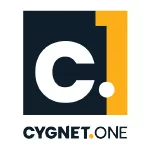The most significant fears for financial institutions and banks are regulatory compliances, fraud, security and money laundering. In the past, regulation was seen as a barrier to entering into Financial Services. Compliances were complex, difficult to comply with, and impossibly intricate for new organizations to adopt.
It is a mandate for financial institutions to clearly identify and create a risk profile for each of their customers. Let’s think of a situation, where a financial organization’s KYC (Know-your-customer), which is a critical part of client onboarding, fails to show up a suspicious transaction done by another financial institution due to insufficient validation of the primary documents. That can happen and something the financial sector is trying hard to avoid.
Here’s a short list of what the KYC compliance challenges majority of the financial institutions currently face:
- Struggle to integrate third-party data
- Failure to comply with regulatory requirements
- Huge penalties and reputational damage
- Face new regulation across different jurisdictions
- Ineffective risk management and timely compliance
- Lack of single, unified KYC system
- Adverse impact on customer relationships
That’s how “RegTech” (Regulatory Technology) came into the picture. It has evolved as a boon to the financial sector. RegTech covers the distinctive nature of innovation and emerging technologies that are focused on solving complex regulatory challenges. In addition, it enables smarter regulation and reduces complexity in existing regulation and compliance.
Here are some processes RegTech can help regulate:
- Monitor penalties for non-compliance
- Stay updated with the latest regulatory changes
- Implement necessary controls for cost reduction
- Apply formal compliance structures and systems
- Foster a culture of compliance within the organization
Technology enables easy creation of a strong culture of compliance. To be specific, technology that gathers and extracts data, conducts in-depth data analysis, and delivers insightful reports is helpful for identifying and reducing compliance risk.
Technologies advancing RegTech solutions
RegTech has distinct characteristics including Data and Analytics, Automation, Artificial Intelligence, Machine Learning and Blockchain. You can read up on how integrating technology with finance sector offers optimal solutions to challenges that helps in staying relevant in the era of digital economy.
In addition, advanced technologies can help organizations standardize processes, ensure procedures are followed appropriately and constantly, and enable organizations to maintain new regulatory or policy changes.

Blockchain for KYC
Blockchain is a type of distributed ledger where the data is reproduced for all participants in real-time which helps them improve their KYC process by enabling real-time data exchange between various stakeholders with faster and effective validation.
Blockchain-inspired solutions could potentially solve challenges like fraud mitigation and reconciliation reduction – Gartner
Blockchain technology can effectively help financial institutions including central banks, credit unions, retail and commercial banks, internet banks, savings and loans associations, investment companies, brokerage firms, insurance companies and mortgage companies.
Using blockchain technology, governments or banks can provide people with digitally stored identity via a blockchain application. Blockchain allows digitally stored information to be replicated across the network and consequently backed up, immutably throughout the network, rather than centrally storing the confidential KYC information on the device.
How it works?
A financial institution will request the blockchain platform for customer’s identity data, if they give consent, they will be able to login via one-time password (OTP) and then they will have the private key to their data. Even if the data is sourced and managed by a third-party, each stakeholder will have transparency of it and the customer will alone be able to control its distribution to everyone else. Blockchain is self-sovereign and so far, it is secure from fraudsters and hackers.
Some of the benefits of using Blockchain for KYC:
- Distributed customer data collection
- Recover rights of end-to-end client interaction
- Better control and more reliable access to non-competitive data
- Standardization and automation of policy and operations
- Smart contracts to execute KYC operations and control processes
- Enable multilingual solutions via smart contracts and translation tools
- Achieve tighter control and reduced regulatory risk
- Limit human input and driving standardization across the industry
- Reduce fraud risk and the scope for human errors
- Control of sanctions and politically exposed person (PEP) screening
Blockchain has the potential to transform the way financial institutions think about identity such as KYC in addition to bringing the self-sovereign identity to the underhand. The KYC using blockchain will focus on increasing cost savings across the entire financial industry, which will sequentially present the leading KYC functionality to potentially unify the process.
And, as many of the businesses in the FinTech industry are working to take this idea forward, the KYC process will be a prerequisite for many of the other industry enterprises that rely on customer identity information to complete more complex transactions just like finance. For these reasons and more, Cygnet Infotech has always fostered a technology-first approach to explore and excel the successful delivery of tech solutions that power lives.
Conclusion
Financial institutions and banks face significant challenges with regulatory compliance, fraud, security, and money laundering, which can lead to reputational damage and penalties. To address these challenges, RegTech has emerged as a boon to the financial sector, offering innovative and emerging technologies to solve complex regulatory challenges and enabling smarter regulation. Blockchain technology, with its characteristics of data and analytics, automation, artificial intelligence, machine learning, and distributed ledger, can effectively help financial institutions with their KYC process.
For a better understanding of innovative technologies like Blockchain and Fintech, get in touch with our experts. Stay ahead of the competition with leading technology providers like Cygnet Digital.










